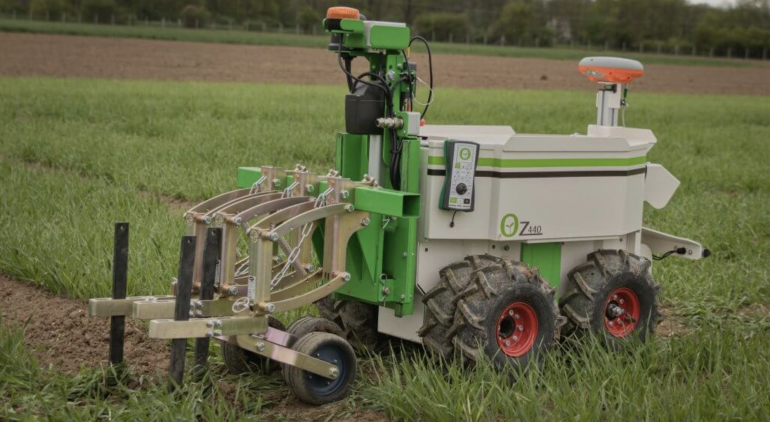Since April, scientists at the Faculty of Agriculture at Mendel University have been enlisting the support of a ‘universal autonomous robot’ to help with field experimentation in Žabčice.
Naïo OZ has saved staff in the department ‘tens of hours of work each year’, with plans to use the machine for other experiments in the School Agricultural Enterprise in the near future.
Previously, a great deal of time and physical labour would be devoted to paving multiple lanes in fields in order to separate hundreds of 10-20 square metre plots for experimentation. Scientists have traditionally used rope and herbicides to parcel out the different plots, with two people needed to stretch the rope and one or two people needed for the spraying.
The spraying of herbicides also requires specific air moisture and temperature conditions, as well as low levels of wind. For areas using ecological methods of farming, where chemical spraying is prohibited, workers would be forced to dig field alleys using hand shovels.
The addition of Naïo OZ, however, has revolutionised the speed and efficiency with which new lanes can be paved for small-plot experimentation. Alleys can now be created in cold and windy weather, when herbicides would usually no longer be effective.
In contrast to the laborious and time-consuming hours previously afforded to the process, an experienced operator can prepare Naïos OZ’s work for the day within 30 minutes. A hand-held GPS is used to direct the robot to the beginning and end of the aisles, before replicating identical parallel lines at the exact distance required for any given experiment. All progress can also be monitored by a mobile phone.
Peter Elzner, the head of the field experimentation station, explained that the faculty also plans to employ the robot for additional uses in the near future, such as digging plots ‘even before sowing, for example, where different fertilisation is carried out, to create plots in full growth… So that the robot can be used, if possible, during the entire growing season.”






